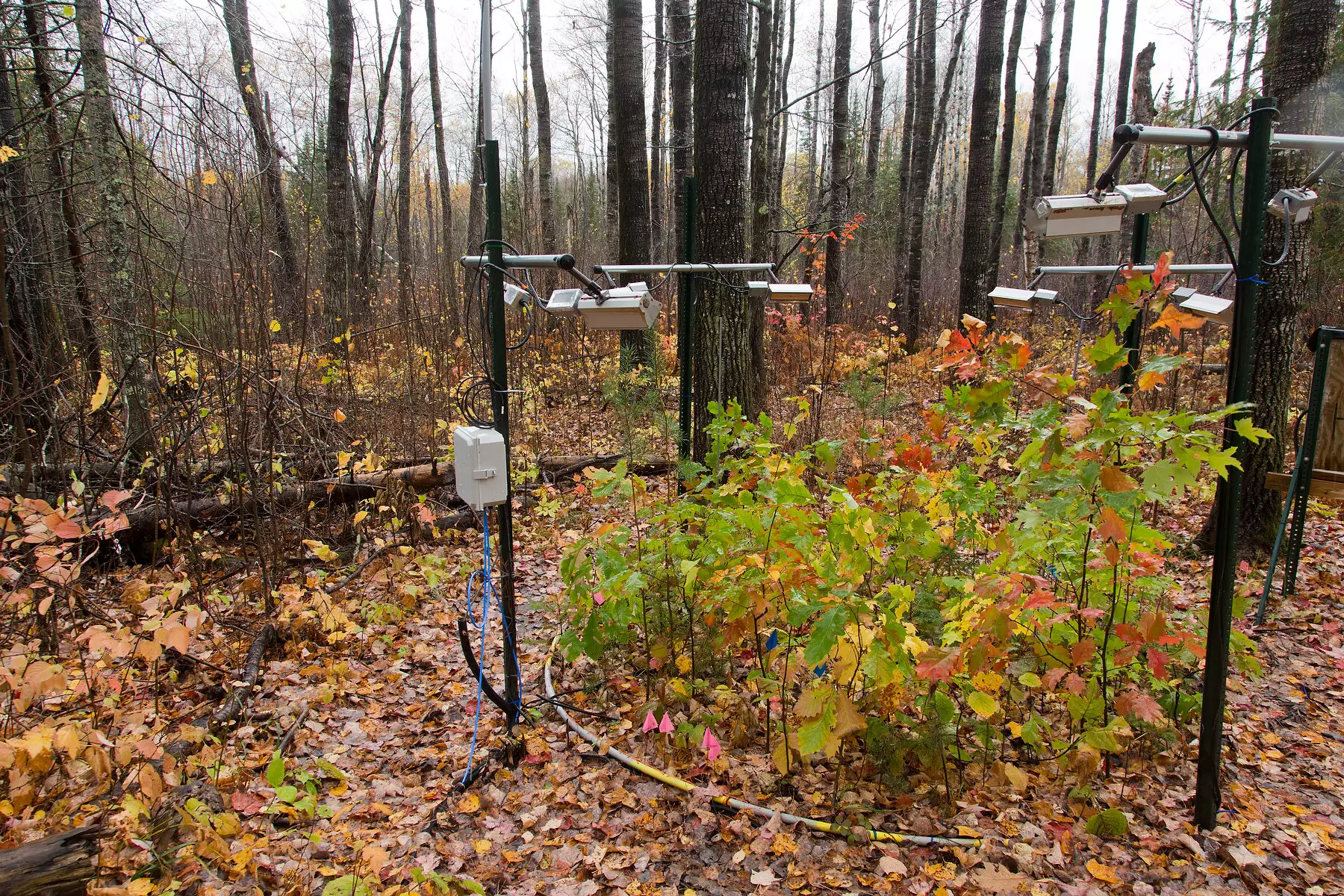A groundbreaking experiment led by Peter Reich of the University of Michigan has shed light on the concerning impact of rising temperatures on carbon flux in forest soils. The study, published in Nature Geoscience, challenges the commonly held belief that northern forests act as key reservoirs for carbon dioxide, trapping it within the soil and preventing it from entering the atmosphere. The findings suggest that, as the planet warms, more carbon is escaping the soil than is being captured by plants, leading to potentially devastating consequences for our climate.
Reich and his team conducted a comprehensive study that lasted for more than a dozen years, making it one of the most in-depth experiments of its kind in the world. The researchers controlled both soil and above-ground temperatures in open air settings, without the use of enclosures, to mimic real-world conditions. By investigating two different warming scenarios across a total of 72 plots in northern Minnesota, the team was able to closely monitor the impact of temperature increase on soil respiration.
The Findings
The results of the study were alarming. Soil respiration, the process through which carbon dioxide is released into the atmosphere, increased by 7% in plots with a modest temperature increase and by 17% in plots with a more extreme temperature rise. This increase in carbon release can be attributed to the metabolic processes of plant roots and soil microbes, which release carbon dioxide as they break down sugars, starches, and other organic matter in the soil.
Interestingly, the researchers found that the increase in soil respiration was somewhat mitigated by a decrease in soil moisture at higher temperatures. Warmer temperatures lead to faster water loss from plants and soils, resulting in drier soils that limit microbial activity. While this may have slowed down the rate of carbon release to some extent, it does not change the overall trend of forests losing more carbon than they are able to sequester.
The implications of this research are profound. As global temperatures continue to rise due to human activities, such as the burning of fossil fuels and deforestation, forests are at risk of becoming sources of carbon dioxide rather than sinks. This feedback loop, known as a positive feedback loop, could potentially exacerbate climate change by accelerating the rate of global warming.
The study led by Peter Reich and his team highlights the urgent need to address the impact of rising temperatures on carbon flux in forest soils. By gaining a better understanding of how warming temperatures affect carbon release from soils, scientists can develop more accurate climate models and mitigation strategies to combat the looming threat of climate change. The time to act is now, before our forests reach a tipping point from which they may not be able to recover.


Leave a Reply